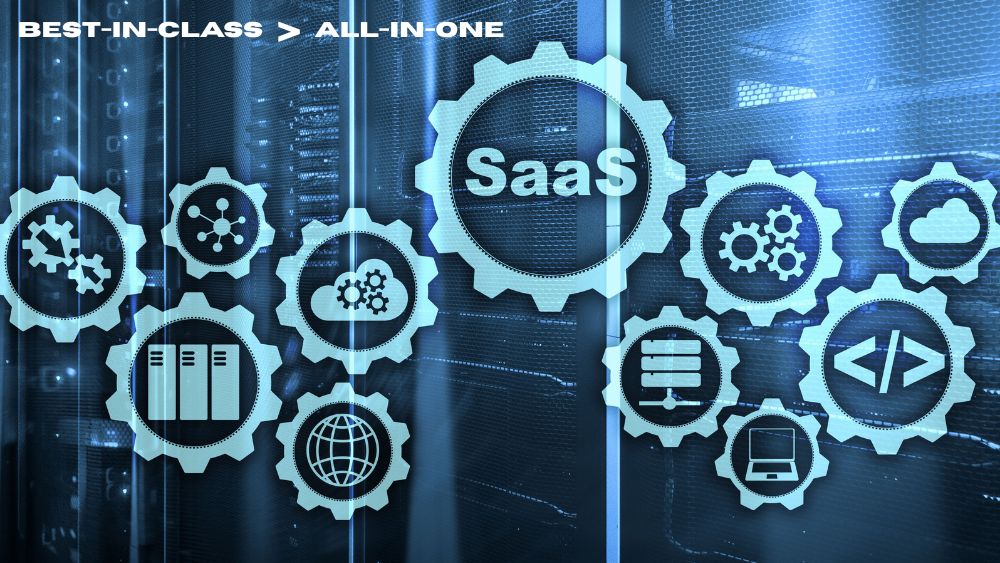Evaluating Your Technology Strategy
Your current technology may be showing its age, approaching end-of-life, falling short of evolving business needs, or delivering subpar service levels. As you search for modern solutions to address specific operational challenges, you’ll face a critical decision: Should you invest in multiple best-in-class specialized solutions that integrate together, or seek a single platform that attempts to handle every business function?
While both approaches have merit, the industry is rapidly shifting toward specialization—and for compelling reasons that directly impact your bottom line.
The Evolution of Business Software Integration
In the late 1980s and early 1990s, petroleum software vendors operated in isolated silos. Integration wasn’t necessary because there was little to integrate with. ERP systems handled most business functions but left gaps in specialized processes. When integration was attempted, it was typically expensive, time-consuming, and frustrating.
This experience shaped the mindset of early software adopters, who passed down a simple philosophy to succeeding generations: “Integration equals problems; single solutions equal simplicity.” Each additional software platform required dedicated resources for maintenance, training, updates, and data management.
However, the landscape has transformed dramatically over the past decade.
The Modern SaaS Revolution
Today’s cloud-based Software-as-a-Service (SaaS) solutions have fundamentally changed the integration equation. Advanced API (Application Programming Interface) technologies now make connecting multiple software solutions faster, more cost-effective, and remarkably seamless.
Modern software providers are gaining competitive advantage by developing highly focused, best-in-class solutions that excel in specific areas—whether that’s customer portals, retail fuel pricing, dispatch optimization, contract management, tax compliance, billing automation, or environmental monitoring. These specialized tools integrate smoothly with your core business applications while delivering superior performance in their targeted functions.
The Costs of Putting All Your Eggs in One Basket
The argument for single-vendor simplicity has merit: fewer vendor relationships to manage, consolidated support, and unified training. However, this approach may limit operational excellence, as specific functionality of your software may lag behind industry best practices and cost your team valuable productivity.
Diversification can be applied to more than just your investment portfolios. Integrating specialized, best-in-class technology can yield huge dividends in efficiency through automation and error-reduction, improving your bottom-line. In the ultra-competitive fuels market, every point saved per gallon matters.
Making the Transition: Due Diligence Best Practices
As you evaluate the shift from monolithic solutions to specialized best-in-class platforms, thorough due diligence becomes essential:
- Reference Verification: Speak directly with current customers about their real-world experiences
- Peer Consultation: Leverage your industry study groups and professional networks for vendor insights
- Documentation Review: Ensure vendors provide comprehensive statements of work outlining specific deliverables, expected outcomes, and realistic timelines
- Integration Testing: Verify API capabilities and integration requirements before committing
The Strategic Advantage of Specialization
While limiting vendor relationships remains a valid consideration, partnering with specialists who solve specific business challenges offers distinct advantages:
- Superior Functionality: Focused solutions typically outperform generic modules in their specialized areas
- Faster ROI: Purpose-built tools often deliver measurable returns more quickly
- Expert Support: Specialized vendors understand your industry’s unique challenges and regulatory requirements
- Continuous Innovation: Companies focused on specific solutions can innovate faster than those spreading resources across multiple functions
The future belongs to businesses that strategically combine specialized solutions to create competitive advantages. Rather than settling for adequate performance across all functions, consider the power of excellence in each critical area of your operation.
Gravitate best-buy & dispatch is the most advanced integrated, AI-powered supply optimization, demand forecasting, order generation, and dispatch solution on the market. Our best-in-class supply optimization engine enables fuel organizations to save 50-100 points per gallon on total supply by embracing market volatility and exploiting micro-arbs. Our auto-load creator and route optimizer reduces required dispatch resources up to 50% and increases truck and driver utilization by up to 5%.

